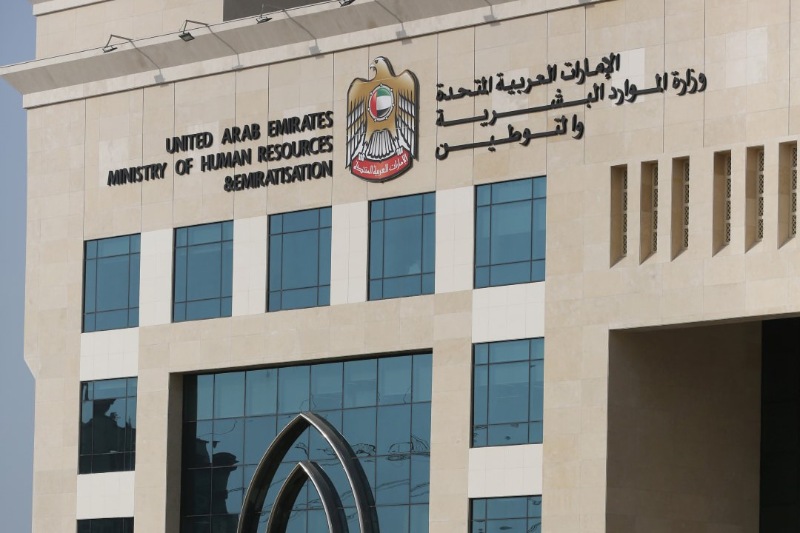Social networking platforms' impact on Emiratization
Many people from all over the world have opportunities in the United Arab Emirates. The UAE has transformed from an area of dispersed oases to the ideal location for business owners and employment seekers. It has developed into a hub for immigrants from all around the world. According to estimates from the UAE National Bureau of Statistics, the population of immigrants has grown tenfold during the past few decades. The population of expats is roughly eight times greater than that of locals in terms of absolute numbers. The percentage of immigrants in this country is by far the greatest in the entire world at around 84% of the total population.
UAE's Traditional Culture
The traditional culture of the UAE is difficult to describe in the modern era due to the overwhelming western influences on everything from music to cuisine. The younger generation is born and raised in a multiethnic society that is based on an aggressive economic growth model, with nothing to support their sense of identity as Emiratis other than the skyscrapers in central Dubai and the ultra-luxurious lifestyle.

What are the effects of immigration on the local population, particularly the younger generation of educated youth, on UAE's remarkable expansion as a global shopping supermarket and its megapolis of city states Dubai, Abu Dhabi, and Sharjah? Do they find it more difficult in a setting where management hopefuls from Harvard and Stanford compete with Indian techies for jobs? Do they stand to lose in this game? According to statistics, the population has been so significantly impacted by immigration that Emiratis are moving abroad themselves.
The cause of this is still under investigation, but it is undeniable that the number of Emiratis leaving the country is increasing. The cultural values that previously separated the UAE from the rest of the Arab world and defined it have been lost in the midst of all this. The government has been progressively launching a mission to expand chances for the local Emirati populace since the latter half of the previous decade. Emirati nationals still make up just 0.34% of the private sector workers, which is frequently cited as evidence of the mixed consequences of this Emiratization. Government investment in education and skill development has risen to all-time highs. Why then does the local populace object to entering the labour force? Is work in the private sector unprofitable or do Emiratis find it challenging to participate in an immigration takeover? Has emiratization restricted itself to merely improving employment prospects and skill development? Has the government gone far enough to restore an Emirati citizen's sense of identity?
What other chances does the government have to sway the newer and younger Emirati citizens?
Online social platforms may sound a bit corny, but in the country with the greatest internet and social network adoption rates, they may be the solution to these problems. The effectiveness with which the government will encourage the use of unique social platforms as a means of communication with Emiratis, both in the UAE and the diaspora, is the subject of debate. The government could address issues directly with Emirati citizens if there was a special social network dedicated to them. It might potentially develop into a channel for two-way dialogue between Emiratis and the government. The government can directly reach Emirati citizens by using social media platforms to promote various Emiratization-related projects, events, and activities.

This will greatly improve communication clarity. Additionally, it may undoubtedly serve as a vehicle for preserving and promoting the nation's actual cultural values through interactions with others and the dissemination of its history.
A native social media platform with a diverse culture is the ideal way to share, support, and adhere to the very notion. Many cultural values that are on the verge of extinction could be protected and perpetuated by maintaining ethnicity as the primary focus so that future generations can trace their privileged ancestry. Regardless of how diverse the discoursers are, a discussion about the Barjeel, Al-Habban, Kandoora, Harees, Machboos, Luqemat, Ibn Majid, Yowla, Desert Rock Festival, football, and cricket becomes culturally rich.
The UAE Cabinet Resolution, which was announced in May 2022, on increasing the percentage of Emirati employees by 2% in the private sector companies with more than 50 employees, was confirmed by the Ministry of Human Resources and Emiratisation (MoHRE) on Wednesday, but only if they are employed in skilled positions.
"The government keeps a careful eye on how businesses are conducting themselves when it comes to emiratization, as well as the kinds of jobs they are providing to UAE citizens. However, we emphasise that in order for businesses to meet their emiratization goals, they must hire Emiratis for skilled positions" Earlier, the ministry said on its official Twitter account.
You may also like: Current Emiratisation Trends In The UAE
Visit www.skillplay.me to know all about Emiratisation and hire Emiratis!


